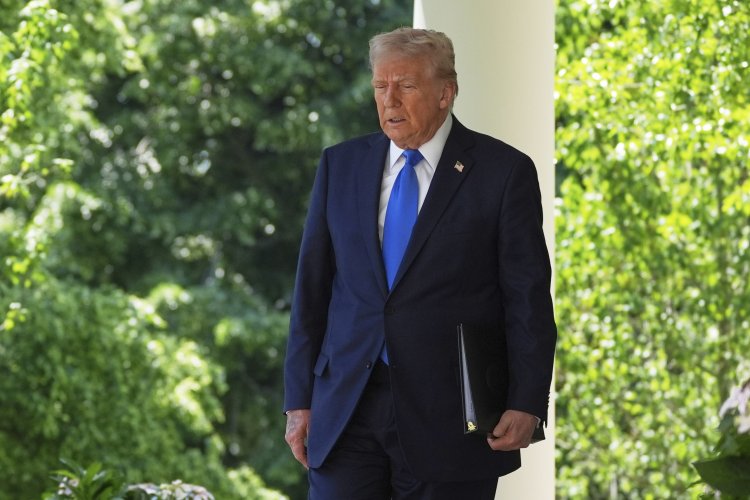Trump-appointed judge rules Trump's swift deportations under Alien Enemies Act are illegal
The judge determined that the Alien Enemies Act is only applicable in situations where the nation is experiencing an armed, organized attack.

This decision, issued by U.S. District Judge Fernando Rodriguez, Jr., who was appointed by Trump, represents a significant criticism of Trump’s vigorous efforts to expedite deportations with minimal due process.
Judge Rodriguez determined that Trump misapplied the law, which allows the president to swiftly expel nationals from countries engaged in an armed, organized attack, to target alleged affiliates of the Venezuelan gang known as Tren de Aragua. He clarified that the Alien Enemies Act is applicable only in situations where the U.S. is facing a genuine armed conflict. According to the judge, Trump’s assertions regarding Tren de Aragua’s activities do not meet this threshold.
While Trump has characterized the gang as an international criminal organization acting on behalf of the Venezuelan government, Rodriguez pointed out that the president has not officially claimed that the gang is "entering the United States at the direction of Venezuela to conquer the country or assume control over a portion of the nation."
In March, Trump issued a proclamation utilizing the Alien Enemies Act against Tren de Aragua, a law that has only been invoked three times in U.S. history—during the War of 1812, World War I, and World War II.
Judge Rodriguez concluded that Trump’s proclamation “exceeds the scope of the statute and, as a result, is unlawful.” He further stated that Trump and other officials “do not possess the lawful authority under the AEA, and based on the Proclamation, to detain Venezuelan aliens, transfer them within the United States, or remove them from the country.”
In recent weeks, other courts, including the Supreme Court, have expressed resistance to Trump’s application of the Alien Enemies Act. However, those rulings have been preliminary, while Rodriguez is the first judge to provide a conclusive decision regarding the legality of the deportations, issuing a “permanent injunction” that offers more stability compared to the temporary blocks from other judges.
It should be noted that Rodriguez’s ruling is limited to his district in southern Texas, and the Trump administration has the option to appeal the decision to the 5th U.S. Circuit Court of Appeals, famously the most conservative federal appeals court.
The first attempt to challenge the deportations under the Alien Enemies Act came from U.S. District Judge James Boasberg in Washington, D.C., who imposed an emergency block on March 15; however, the administration had already initiated the first wave of deportations. Just hours after Boasberg’s order, 137 Venezuelan men residing in the U.S. were sent to a notorious prison in El Salvador.
Supporters of the men argue that many have no connections to Tren de Aragua or any other gang and were not afforded a genuine chance to contest their deportations.
The Supreme Court subsequently lifted Boasberg’s block, indicating that lawsuits regarding Trump’s use of the AEA would need to be filed in courts outside of Washington, D.C. Nonetheless, the justices emphasized the need for the administration to ensure meaningful due process for anyone targeted for deportation under this act.
Last month, the Supreme Court intervened again as the administration seemed to be preparing another group of alleged “alien enemies” for rapid deportations in northern Texas. In an unusual late-night ruling, the court instructed the administration to refrain from deporting these individuals until further notice.
Additionally, federal judges in Colorado and Manhattan granted broad yet temporary restrictions on deportations under the Alien Enemies Act last month.
Following Rodriguez’s ruling, he declined the administration's request for explicit authorization to rapidly deport one of the alleged “alien enemies,” Daniel Zacarias Matos, under a different immigration authority. Although prosecutors indicated readiness to proceed with that deportation as early as Thursday, Rodriguez determined that additional time was required to assess the pertinent issues.
Sophie Wagner for TROIB News











